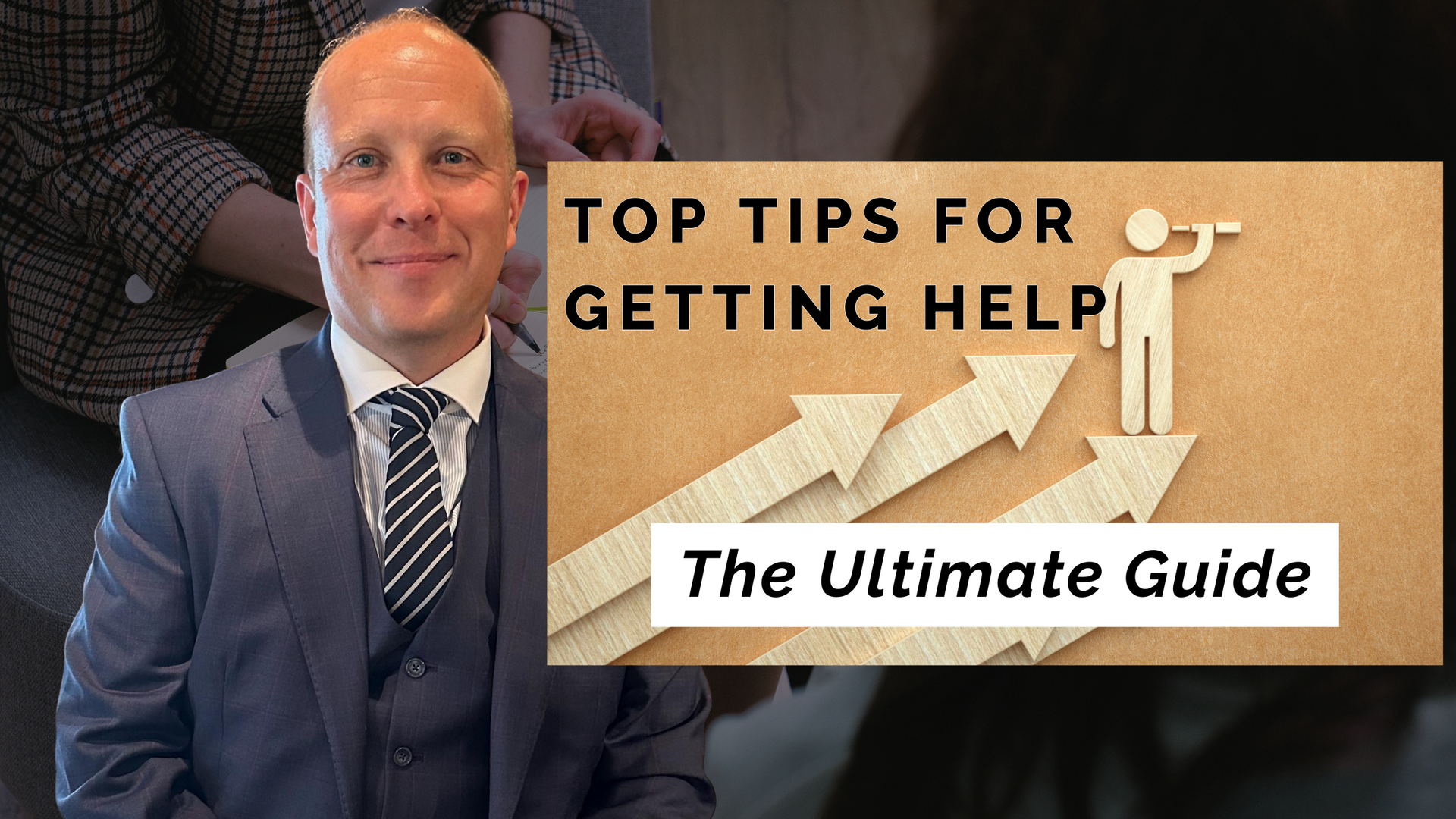Talent and Skill Aren’t Enough
The Power of Supportive Connections in Achieving Success

In this blog I discuss a profound insight which came from a conversation about God, Religion and Church.
As part of my own spiritual journey I have started to discover The Bible and God, after a 44 year absence. This time with a wiser head I still had the same question I did when I was 6 years old - Why Do I Need To Go To Church?
At a service about 6 months ago a Pastor said of Matthew 18:20, “ For where two or three gather in my name, there am I with them,” he was emphasising the profound importance of community in the Church and this was the place to find God - I still wasn't convinced.
Although I understood this, I have never felt God's presence in church and further reading, the truth of this verse is that it emphasises the profound importance of community and connection not just the church. It reminds believers that Christ’s presence is not confined to large congregations or grand buildings but is found wherever people come together in His name—whether in worship, prayer, fellowship or more importantly service.
This verse assures us that even the smallest gatherings are sacred spaces where Christ works to guide, strengthen, and unify His followers.
This is why connection to a divine purpose, be that from a spiritual, personal or business perspective is all about aligning with those who serve others to improve humanity not those who wish to take your divine energy.
No one ever does it alone
Whether you believe in God, an ultimate creator or not we simply can't do things alone - No one is really self made.
What if the ultimate creator—God, the source of all creativity and connection—is calling us to come together, not as an act of religion, but as an act of love and unity?
Think about it - does the world look like a place where people are working together to make the world a better place or hoarding other peoples energy for themselves?
In this unity, we find a profound truth: our greatest strength is not in our individual talents, but in the collective power of purpose, serving something greater than ourselves.
The Mastermind Principle
This idea aligns closely with Napoleon Hill’s Mastermind Principle, which teaches that when like-minded individuals gather with a shared purpose, their combined energy, intelligence, and creativity far exceed what any one person could achieve alone. Hill described this as the creation of a "third mind," an invisible force that emerges from collaboration and harmony.
Sound familiar?
Napoleon Hill's concept of the
"third mind,"
described as an invisible force that emerges from collaboration and harmony between individuals, can be interpreted as aligning with God’s presence and will. Hill's idea suggests that when people come together with aligned intentions and a shared purpose, a higher power - God’s presence, if you will - can guide and amplify their efforts.
This "third mind" can be seen as the divine inspiration or wisdom that flows when individuals work in unity, seeking a greater good. It’s not just human intellect or synergy at play but the manifestation of God's will, empowering the group to achieve outcomes that reflect love, service, and divine truth.
The presence of God—however you define it—can be seen as the ultimate third mind, guiding and empowering us when we come together to support and uplift one another.
But what happens when we feel isolated, cut off from the support of a flock or a mastermind?
Social or business isolation and a lack of meaningful connections can make life’s challenges feel insurmountable.
I confess this is why my journey turned back to God, I just felt my energy was being used so others may gain.
I had spent so much time paying money for Masterminds, to get that support and connection but over and over I failed.
It was in fact a suprising conversation that led to an mentoring relationship which both myself and my mentor did not realise would manifest.
That relationship brought me back to God.
The struggle
Here is the rub though, I found God but I just didn't feel comfortable with church, no matter how much I tried, something inside didn't feel right.
God’s wishes for humanity, as echoed in many spiritual traditions, centre on living lives rooted in love, unity, and compassion. Being present in His name means embracing His qualities—kindness, humility, forgiveness, and a desire to uplift others. At its core, God wants us to recognise our inherent worth, see the divine in one another, and contribute to a world that reflects peace and justice.
This isn't about Church, it's about doing God's work in the world to allow people to be the best they can be.
For some Church can be an port in the storm of life. My job isn't to hunker down in port, it's to take God's gift into the world and help others.
Let's look at what Jesus did......
Jesus emphasised that worship and connection with God were not confined to a physical building but were matters of the heart and spirit. In John 4:23-24, He said,
“A time is coming and has now come when the true worshipers will worship the Father in the Spirit and in truth, for they are the kind of worshipers the Father seeks.”
When it comes to the purpose of doing God's work, Jesus made it clear that it is not about staying in a place of worship but about living out God’s will in the world. He demonstrated this by serving others, healing the sick, lifting the poor, challenging injustice, and spreading love and truth.
In Matthew 28:19-20, He gave the Great Commission, telling His followers to
“go and make disciples of all nations.” This highlights that doing God’s work is active—it’s about going out into the world, embodying His teachings, and serving others in His name.
Jesus would likely affirm that the purpose of worship and fellowship is to equip and inspire people to live out God’s work, not to remain in the comfort of a building but to be the hands and feet of God in the world.
This is where coaches, therapists, and mentors become invaluable allies, whether they conform to the teaching of the bible or any other form of spiritual practice, they help you take the first steps toward building the connections and support systems that lead to greatness.
Unity and the Mastermind Principle
Both Matthew 18:20, which says
“For where two or three gather in my name, there am I with them,” and Napoleon Hill’s Mastermind Principle emphasise the transformative power of connection.
When people unite around a shared intention, their combined energy creates growth and innovation, creating outcomes far greater than what individuals could achieve on their own.
Hill believed that a mastermind group was essential for success, as it provides:
Accountability: Members hold each other responsible for their actions and goals.
Shared Wisdom: Collective experience brings fresh ideas and solutions.
Encouragement: The group strengthens and motivates one another to persevere.
“For where two or three gather in my name, there am I with them,”
The Challenge of Isolation
For many people, however, this ideal of unity feels out of reach. Social isolation, especially in business, whether caused by external circumstances, internal struggles, or a message or purpose that does not conform to the normal narrative is a growing challenge in modern life. It’s not just about being alone; it’s the feeling of disconnection from others and a lack of meaningful support that can weigh heavily.
Isolation can lead to:
Emotional Distress: Feelings of loneliness, anxiety, and depression.
Limited Perspective: Without others to share ideas and experiences, it’s easy to feel stuck or overwhelmed.
Reduced Resilience: Challenges can feel harder to overcome without a support system.
Isolation robs us of the synergy that both Matthew 18:20 and the Mastermind Principle highlight. Without people to collaborate with or lean on, it’s hard to find the energy, creativity, and encouragement to reach our full potential.
How Coaches, Therapists, and Mentors Can Help
If you feel disconnected or isolated, you don’t have to wait for a community to find you. Coaches, therapists, and mentors can be the starting point for building the connections and support systems you need.
1. Therapists:
Addressing Emotional Barriers
A therapist can help you process feelings of isolation and uncover any internal barriers to connection, such as fear, self-doubt, or past traumas. They provide a safe space to explore your emotions and develop healthier patterns of thought and behavior.
2. Coaches:
Setting Goals and Taking Action
A coach helps you clarify your goals and create a roadmap to achieve them. They hold you accountable, challenge you to grow, and encourage you to take bold steps forward. By providing structure and focus, a coach helps you break out of isolation and move toward your purpose.
3. Mentors:
Sharing Wisdom and Building Bridges
A mentor offers guidance based on their own experiences, helping you navigate challenges and avoid pitfalls. They can also introduce you to networks and communities, bridging the gap between where you are and where you want to be.
My mentor bridged a gap I didn't even know I was missing. Well that's not true, let's say my mentor gave me permission to speak to God again and often that is what we need. To give ourselves permission.
From Isolation to Greatness
Connecting with coaches, therapists, and mentors isn’t just about getting help; it’s about creating your own version of a mastermind group. Even if your initial "group" is just one professional guide, they can help you build the confidence and connections you need to thrive. Over time, this support can grow into a wider network of relationships that empower and inspire you to reach new heights.
Society often suggests that connecting with God means attending church, and moving forward in life requires a traditional coach, therapist, or mentor.
However, not everyone who attends church or worships in God's name is truly doing God’s work, just as not all mainstream support systems genuinely prioritise a person's growth and divine purpose.
At
Make Your Life Count, we align with God's principles, creating a space where authentic connection, healing, and guidance flourish.
Inspired by Matthew 18:20,
“For where two or three are gathered together in my name, I am there in the midst of them,” our work is about creating the environment where God's presence and direction are at the centre.
How you define God, purpose, love or fulfillment is yours to discover.
This article is about aligning to love, to serve, and to live in truth, fulfilling your unique purpose while making a positive difference in the world.
Your Greatness Deserves To Be Supported
Whether you see God as a divine father, the force behind all creation, or simply a source of inspiration, the message is clear: we are called to come together. When we unite, we unlock our greatest potential, creating a world where everyone has the chance to thrive.
Who can you be of service to?
How can you help me change the way we support people?
What is your version or service - Is it to take for yourself or connect and work with others for the greatness of all mankind?
If you feel isolated or disconnected, know that you don’t have to face life’s challenges alone. Therapists, coaches, and mentors can be the first step in answering the call to unity, helping you rediscover your purpose, rebuild your connections, and create a path to greatness. Together, we can find the strength, wisdom, and peace that come from truly supporting one another.











